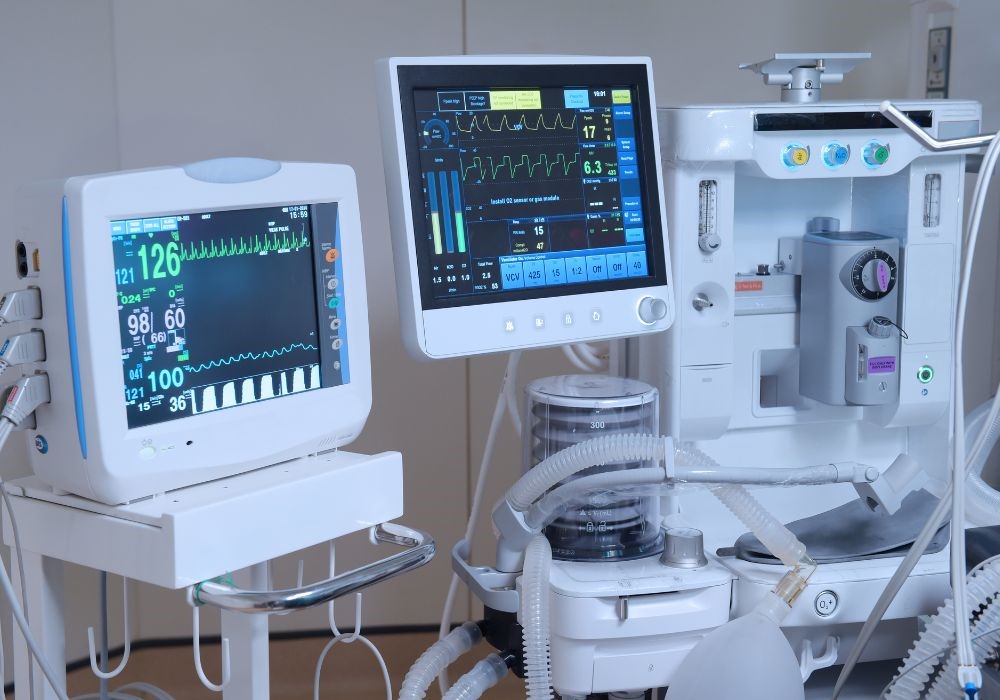Starting a business in the healthcare industry can be a rewarding and profitable venture,
but it’s not always necessary to have a degree to be successful. Here are a few
examples of healthcare businesses that can be started without a degree:
1- Medical Billing and Coding

Medical billing and coding is a necessary aspect of running a healthcare practice, but it can be outsourced to a third-party business. Starting a medical billing and coding business requires knowledge of medical billing software and coding systems, but this can be learned through training programs and certifications.
2- Home Care Services

As the population ages, there is a growing demand for home care services. Starting a home care business can be done without a degree, but it does require knowledge of the healthcare industry, as well as a passion for helping others.
3- Medical Equipment Rental

Many healthcare practices and hospitals rely on medical equipment, such as oxygen tanks, hospital beds, and wheelchairs, that can be rented out for patients to use at home. Starting a medical equipment rental business requires knowledge of medical equipment and the ability to maintain and service it, but a degree is not necessary.
4- Medical Transportation

A medical transportation business can include things such as non-emergency medical transportation, wheelchair-accessible transportation, and transportation of medical equipment which is also called a nemt business. This business can be started without a degree, but it does require knowledge of transportation logistics and the ability to comply with regulations.
5- Telemedicine

With the growth of technology, telemedicine has become increasingly popular. Starting a telemedicine business can be done without a degree, but it does require knowledge of telemedicine software and the ability to comply with regulations.
6- Medical Supply Store

A medical supply store can sell products such as medical equipment, medical supplies, and over-the-counter medications. Starting a medical supply store requires knowledge of the healthcare industry and the products that are sold, but a degree is not necessary.
It is important to note that while these businesses do not require a degree, it is still
important to have knowledge and experience in the healthcare industry. Additionally,
many of these businesses will require licenses and certifications in order to operate
legally.
Conclusion
In conclusion, starting a business in the healthcare industry does not necessarily require
a degree. There are many opportunities for entrepreneurs to start a business in the
healthcare field, such as medical billing and coding, home care services, medical
equipment rental, medical transportation, telemedicine, and medical supply stores. With
the right knowledge and experience, these businesses can be successful and rewarding
ventures.
Read Also
- How to Drive Growth Through Customer Centricity in HealthcareThe world of healthcare is changing in big ways. Consumers are now stepping up and taking charge of their health journeys. This change is happening now for important reasons. The U.S. health and wellness market is huge, projected to be over $6 trillion in 2025. This growth is fueled by rising out-of-pocket costs and more… Read more: How to Drive Growth Through Customer Centricity in Healthcare
- Why Biotech Companies Choose Contract Manufacturing Organizations for Scalable GrowthBiotech and pharmaceutical companies are under constant pressure to innovate, scale fast, and stay compliant. Doing everything in-house can slow them down. That’s why many are turning to a contract manufacturing organization to handle specialized production needs—especially in genetic and molecular biology fields. Reliable CMOs offer speed, precision, and regulatory knowledge. For early-stage firms, this… Read more: Why Biotech Companies Choose Contract Manufacturing Organizations for Scalable Growth
- Maximizing Digital Reach for Podiatry Clinics in Local HealthcareMaximizing Digital Reach for Podiatry Clinics in Local Healthcare As the healthcare industry evolves, mobile marketing becomes indispensable for practitioners. Podiatry clinics, focusing on foot and ankle care, must adapt to digital strategies to engage patients effectively. Implementing tailored SEO practices is crucial for these clinics to thrive in an increasingly competitive market. Digital marketing… Read more: Maximizing Digital Reach for Podiatry Clinics in Local Healthcare
- How to Start a Mental Health Conversation with Your ManagerTalking about mental health at work can feel awkward, intimidating, or even risky. But if you’re struggling, keeping it bottled up isn’t going to make things better. Having an open and honest conversation with your manager can be a game-changer, whether you need accommodations, support, or just someone to understand what you’re going through. This… Read more: How to Start a Mental Health Conversation with Your Manager
- How Efficient Business Contracts Can Boost GrowthIn the business world, efficiency isn’t just a buzzword—it’s a necessity for survival and growth. Every facet of a company can contribute to greater efficiency, but some often-overlooked areas hold substantial potential. Business contracts, particularly those loaded with bureaucratic jargon, can slow down operations. Streamlining these can free up resources and time, allowing for greater… Read more: How Efficient Business Contracts Can Boost Growth






